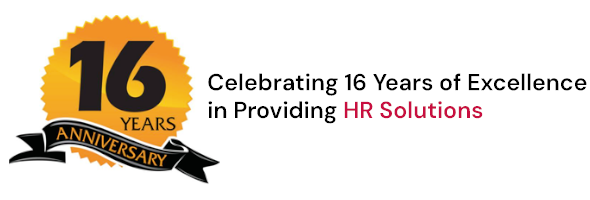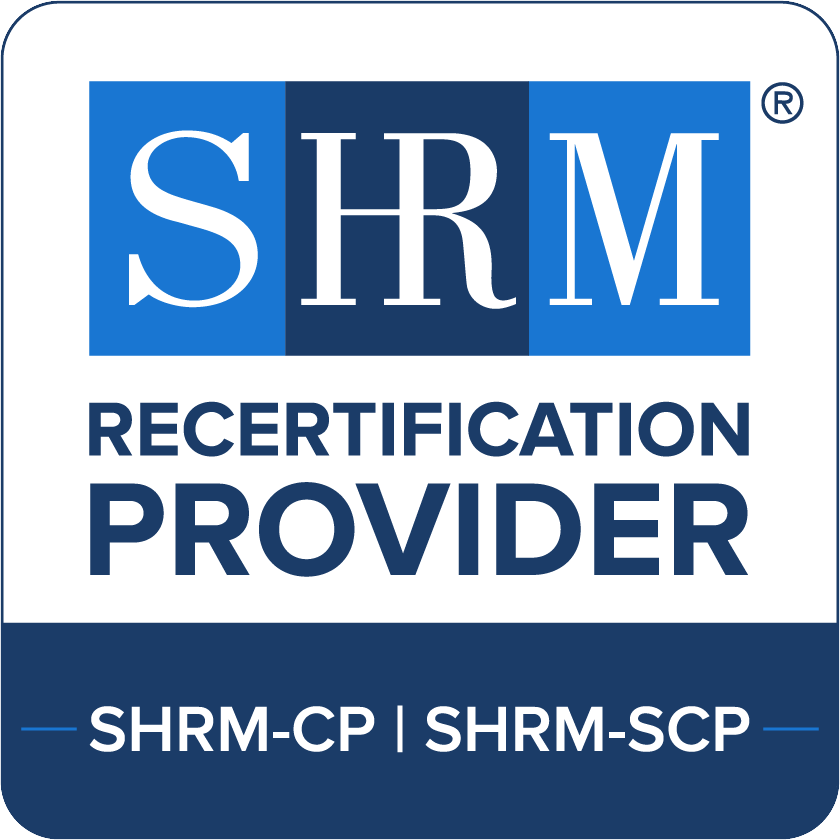HR Pathway Scholarship for Veterans & Survivors of Domestic Violence

Career transitions can be challenging for anyone, but veterans returning to civilian life and survivors of domestic violence face unique barriers to achieving financial independence and professional fulfillment. At Compass Workforce Solutions, we understand these challenges intimately.
Our founder’s personal experience using HR expertise to build financial independence while escaping an abusive marriage inspired our commitment to creating pathways for others facing similar circumstances. That’s why we’ve developed the HR Pathway Scholarship—a comprehensive program designed to build competence, capabilities, and confidence for veterans and domestic violence survivors seeking stable, rewarding careers in human resources.
Why HR Careers Offer Life-Changing Opportunities
Human resources represents one of the most stable and growing career fields, with the Bureau of Labor Statistics projecting 8% growth through 2033—faster than average for all occupations. HR professionals enjoy competitive salaries, opportunities for advancement, and the flexibility that many other careers lack. Perhaps most importantly for our scholarship recipients, HR careers offer multiple entry points and pathways for advancement without requiring extensive previous experience in the field.
The skills that make someone successful in HR, communication, problem-solving, attention to detail, and the ability to work with diverse populations, often align naturally with the experiences of veterans and survivors. Military service develops leadership capabilities, compliance awareness, and team management skills that translate directly to HR functions. Similarly, survivors of domestic violence often develop exceptional resilience, crisis management abilities, and emotional intelligence that prove invaluable in human resources roles.
HR Career Paths and Growth Potential
| HR Role | Entry-Level Salary Range | Mid-Career Progression | Required Skills/Experience |
| HR Coordinator | Administrative foundation | HR Generalist advancement | Organization, communication, basic HR knowledge |
| Recruiter/Talent Acquisition | Commission/performance-based growth | Senior Recruiter, TA Manager | Relationship building, sales skills, interviewing |
| Training Specialist | Program development opportunities | Learning & Development Manager | Training design, facilitation, needs assessment |
| Benefits Administrator | Compliance and vendor management | Benefits Manager, Total Rewards | Detail orientation, analytical skills, compliance knowledge |
| HR Business Partner | Strategic organizational influence | HR Director, VP roles | Business acumen, consulting skills, strategic thinking |
What makes HR particularly attractive for our scholarship populations is the career flexibility it offers. Many HR roles can be performed remotely or with flexible schedules, accommodating the geographic constraints veterans might face or the safety considerations important to survivors. Additionally, HR skills are transferable across industries, providing career security even during economic uncertainty.
The financial stability that HR careers provide goes beyond just competitive salaries. HR professionals often have access to comprehensive benefits packages, professional development opportunities, and the potential to build consulting practices or start their own businesses—creating multiple streams of income and long-term financial security.
Understanding Our Target Scholarship Recipients
We recognize that veterans and domestic violence survivors bring unique strengths to the workplace while also facing distinct challenges in career transitions. Our scholarship program is designed with a deep understanding of both the obstacles and the exceptional capabilities these populations possess.
Veterans Transitioning to Civilian Careers
Military service provides excellent preparation for HR careers, though translating military experience into civilian terms can be challenging. Veterans often struggle with networking in civilian contexts, understanding corporate cultures that differ significantly from military environments, and communicating their valuable skills in language that civilian employers recognize.
However, the core competencies developed through military service align exceptionally well with HR requirements. Military personnel learn to manage diverse teams, navigate complex regulations, handle sensitive information with discretion, and solve problems under pressure—all essential HR skills.
Military Skills That Excel in HR Careers
- Leadership and team management experience from military service
- Strong communication skills developed through diverse military interactions
- Attention to detail and compliance-focused mindset from military protocols
- Problem-solving abilities honed in high-pressure situations
- Cultural competency from working with diverse populations
- Project management experience from military assignments
The challenge for many veterans isn’t capability but rather translation; helping employers understand how military experience translates to HR functions and helping veterans adapt their communication style and approach to civilian workplace expectations.
Survivors of Domestic Violence Seeking Financial Independence
Domestic violence often disrupts education and career development, creating gaps in work history and limiting professional networks. Financial abuse, a common component of domestic violence, can damage credit and create additional barriers to economic independence. Survivors may also face geographic limitations if relocation for safety is necessary.
Despite these challenges, survivors develop remarkable strengths that serve them exceptionally well in HR careers. The experience of navigating crisis situations builds resilience and emotional intelligence. The necessity of reading situations carefully and managing complex interpersonal dynamics develops skills directly applicable to employee relations and conflict resolution.
Most importantly, survivors understand the critical importance of financial independence and professional respect. This motivation, combined with the practical skills developed through their experiences, often makes survivors exceptionally dedicated and successful HR professionals.
The personal experience of rebuilding life and career also creates deep empathy for others facing workplace challenges, making survivors naturally effective at supporting other employees through difficult situations, which is a core HR competency.
Mentorship and Professional Development Support
Each scholarship recipient is paired with an experienced HR professional who understands the unique challenges faced by veterans and survivors. Our mentors provide industry insights, professional networking opportunities, and the kind of personal support that makes the difference between surviving and thriving in a new career.
Mentorship relationships typically continue well beyond the formal program period, creating lasting professional connections that support long-term career growth. Many of our mentors are veterans or survivors themselves, providing authentic understanding of the challenges involved in career transition.
Professional development support includes guidance on industry certifications like PHR or SHRM-CP, assistance with professional association memberships, and ongoing invitations to networking events and continuing education opportunities. We believe that building a strong professional network is essential for career advancement, particularly for individuals who may be rebuilding professional connections.
Job Placement and Career Services
Our employer network actively seeks to hire program graduates, recognizing the exceptional value that veterans and survivors bring to their organizations. These employers understand that diversity of experience strengthens their teams and that the unique perspectives of our scholarship recipients enhance their HR functions.
Career services include resume optimization specifically for HR roles, interview preparation that addresses common questions and scenarios in HR positions, and ongoing job search support until placement is achieved. We also provide guidance on salary negotiation and benefits evaluation to ensure that our graduates secure positions that provide the financial stability they seek.
Our approach to job placement is highly personalized, recognizing that career goals and life circumstances vary significantly among our participants. Whether someone seeks a traditional corporate HR role, prefers the flexibility of recruiting positions, or aspires to eventual consulting independence, we tailor our support to their specific objectives.
Program Partnerships and Employer Network
The success of our scholarship program depends on strong partnerships with organizations that share our commitment to supporting veterans and survivors. We work closely with veteran service organizations, domestic violence service providers, and community organizations to identify qualified candidates and ensure comprehensive support throughout the career transition process.
These partnerships provide wraparound services that address the broader challenges scholarship recipients may face. From housing assistance to counseling services to childcare resources, our partner organizations help create the stability necessary for successful career change.
Our employer network represents organizations that actively value diversity and recognize the unique strengths that veterans and survivors bring to the workplace. These employers understand that hiring from underrepresented populations strengthens their organizations and often provides access to exceptional talent that might otherwise be overlooked.
Many of our employer partners have developed specific initiatives to support veterans and survivors in their workforce, creating environments where our graduates can thrive long-term. These organizations often provide additional mentorship, flexible work arrangements, and advancement opportunities that support continued career growth.
The community aspect of our partnerships extends beyond the formal program period. Our graduates often become advocates within their new employers for hiring additional veterans and survivors, creating expanding opportunities for future scholarship recipients.
Partner With Us to Support Your Clients’ HR Careers
Our HR Pathway Scholarships are awarded exclusively through partnerships with not-for-profit organizations that serve veterans and/or survivors of domestic violence. If your organization supports these communities and would like to learn more about this scholarship opportunity for your clients or constituents, we invite you to reach out to Compass Workforce Solutions. We rely on our NFP partners to identify and refer eligible individuals; we are not able to accept direct applications from individuals or conduct individual vetting.
If you represent a qualifying not-for-profit organization and are interested in collaborating to help your clients pursue meaningful HR careers, please contact us to discuss partnership and referral opportunities. Together, we can create new pathways to financial independence and professional fulfillment for those who need it most. Reach out to us today.












